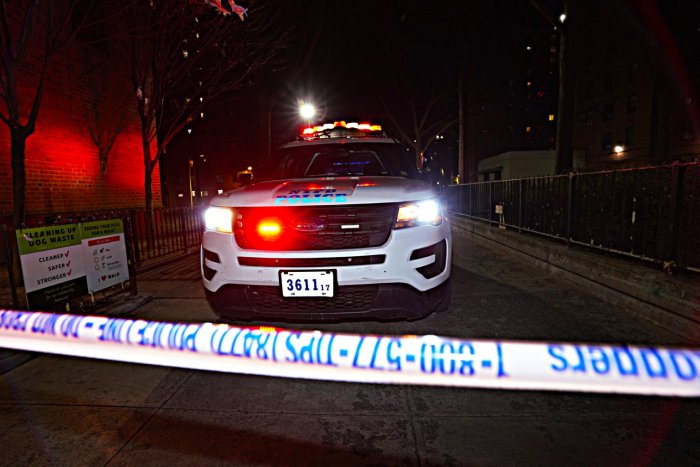By Barbara Morris
The saying “Self-preservation is the first rule of man” seems to apply to the New York Police Department’s efforts to teach us the basics of terrorists and what we can do to help ourselves and the police to prevent tragedy. They are doing so through face-to-face meetings and other avenues of communication.
There are civilian groups such as police auxiliaries, block watchers and civilian patrols being trained to participate in anti-terrorism activities. These groups do not endorse racial profiling; instead, they target behavior. Be alert to criminal behavior of an individual or a group, whether or not you feel terrorism is involved, and alert the authorities.
As the saying goes, “Hey, you never know.” Terrorists preparing to commit or engaging in terrorist acts are ideologically inspired. They may seem nervous and perspire profusely, or they may have a mind set that will allow them to stay “cool.”
There also are people who are emotionally disturbed and project the possibility of harm to themselves, others or property. Crime has three characteristics: desire, which can’t be controlled; ability, which also can’t be controlled; and opportunity, which must be limited or stopped.
To accomplish the latter, good listening skills should be employed. Feelings must interfere with something observed that seems suspect. Some terrorists have been trained to appear helpful and friendly, so you should learn to rely on intuition. The entire situation must be taken into consideration.
Even if you think someone is friendly and you observe that individual using non-verbal communication, such as hand, eye or body language, if you have some trustworthy person with you, use feedback. Ask, “Did you see that?”
If the answer is yes, ask what impression that had made. If you suspect something is amiss, report the situation to the authorities immediately. Suspicious activities should be reported to 1-888-NYC-SAFE. All calls are confidential and will be investigated.
Report life-or-death situations to 911, as in the past. To report quality-of-life issues, call l-868-677-LIFE, or the new 311 system, which will try to direct any complaints, compliments or questions to the proper place. Remember to report your suspicions to authorities. Do not become personally involved.
To complicate trying to seek out terrorists, we must not accept some facts that may at one time have had some credence but are no longer true. Not all terrorists are male; women and children also are trained to commit terrorist acts. They do not always act alone, and they are not always religious fanatics.
Terrorists are trained to blend in. Some may or may not speak English fluently, and not all of them have accents. Although they cannot easily be identified, they usually are well paid.
Landlords should be particularly alert if a tenant doesn’t pay rent with a check. Terrorists often seek transient quarters, pay ahead or on time, have little furniture and may have meetings at odd times with one or sometimes many people.
They may seek transient quarters because they are afraid you may be a “good neighbor type” who will report strange behavior to the authorities. If you do report something, try to give as much information as possible: Who do you suspect? What do you suspect? Where is the activity or person? When is activity taking place? Why do you think it is suspicious?
Have as much personal data about the suspect as possible, including sex; race; age; height; weight; build; hair and facial hair, including color, length and style; and clothing, including glasses, jewelry and footwear.
If a vehicle is involved, give as complete a description as possible, including make, model, color, plate number or partial plate number, markings, damage and special equipment such as lights, flags, etc. It is not only important to remember that we need the police; we also must remember that they need us. Please help.



































